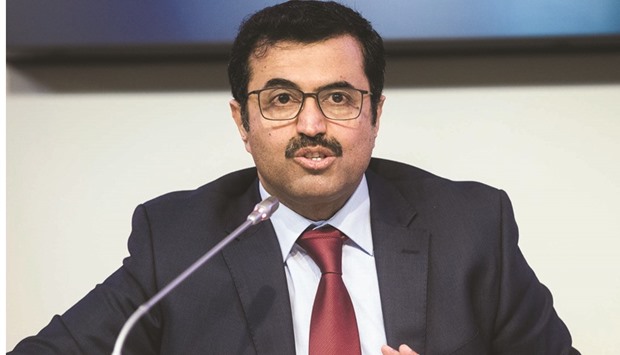At the International Petroleum Week hosted in London by the Energy Institute, HE Dr Mohamed bin Saleh al-Sada, Minister of Energy & Industry, Qatar, gave a Bloomberg-moderated interview on the subject ‘NOCs in transformation: a view from the Middle East’.
Asked about the respective roles of National Oil Companies (NOCs) and International Oil Companies (IOCs) he said: “We have seen them converging when it comes to the spectrum of their businesses and modus operandi. NOCs have become more international. The gap between the two is narrowing and we are learning from and cooperating with each other.”
While acknowledging that there is huge added value to be gained with partnering with IOCs, he noted that NOCs had made considerable progress not just technologically but across many facets of the business.
“The partnership between the two is always there and there is competition around who will add more value to any new enterprise. But, at the same time the NOCs are also gradually and persistently looking at opportunities to cooperate with other NOCs.
“Be it NOC or IOC you will always find that the strength of one can be merged into the strength of the other in a complementary way. I think that the cooperation between NOCs and IOCs will continue and IOCs will continue to add value but the choice is going to be wider in terms of who adds more value to specific projects.”
Asked whether in view of the importance of the Chinese market, the country would be increasingly drawn into projects, he commented.
“I am not surprised that more and more Chinese companies are coming to the Gulf as well as to other parts of the world. In a broader sense, China’s trade with other parts of the world has increased significantly over the last two decades. So that is a natural process.”
On the subject of pricing, he commented.
“When it comes to adding value there are many factors to be considered looking at the full cycle of the project and price is just one element. We view projects from a strategic and long-term perspective.”
With regard to the Saudi Aramco IPO and its implications for the Middle East region, he said: “We will be looking at the Saudi experience. Every country has its own traditions and circumstances and whether this experience will be replicated or not will depend on the circumstances of each individual country.”
Concerning capital expenditure and investment in the industry – he said this was vital.
“You need investment just to keep the plateau, let alone if you want to satisfy the world with regard to its increasing needs.
“During the price crunch over the past two and a half years we did not experience a drop in demand – demand remained very healthy.
“Last year we added 1.2mn bpd; this year is estimated at 1.4mn bpd and that type of increase in going to continue. You need a lot of investment to keep up with demand – otherwise the shortage will be very evident.”
Asked about the Russian position, he said:
“I see Russia as committed. They initially found it difficult to freeze because they have a number of developmental projects but when we came together and had that very transparent and cooperative meeting we came to an agreement with everyone on cutting production and Russia came up with this plan of cutting down in the first month by 100,000 bpd and subsequently 200,000 and later 300,000 bpd. I feel that with everyone’s commitment we are definitely heading in the right direction.
“Opec countries have the mechanism to estimate and calculate the production levels of individual countries.
For us, this is the first time we have developed a mechanism to estimate the production of non-Opec countries. We are on a learning curve; the first attempt was a good one but it could be better. Our estimate is that there is 50% compliance but it could be more.”
On the impact of US shale, he observed: “Shale represents the biggest incremental increase in recent years into the market. But the question regarding shale is whether the world’s needs will be fully accommodated today or down the road within a year or two.
“Shale drops its productivity hugely; within two years there can be an 80% loss from the initial stage or even more. So a certain amount of the rate added is just to maintain the plateau.”
He was asked a question from the floor: ‘Do you want to get to the stage where you are buying and selling LNG that you haven’t produced?’
He answered: “We have been looking at this possibility. With our level of production of approximately 77mn tonnes of LNG marketed worldwide we have accumulated huge experience and are exporting to all continents – all corners of the world, and that makes it natural that we would consider such a thing.”

Al-Sada: Viewing projects from a strategic and long-term perspective.
